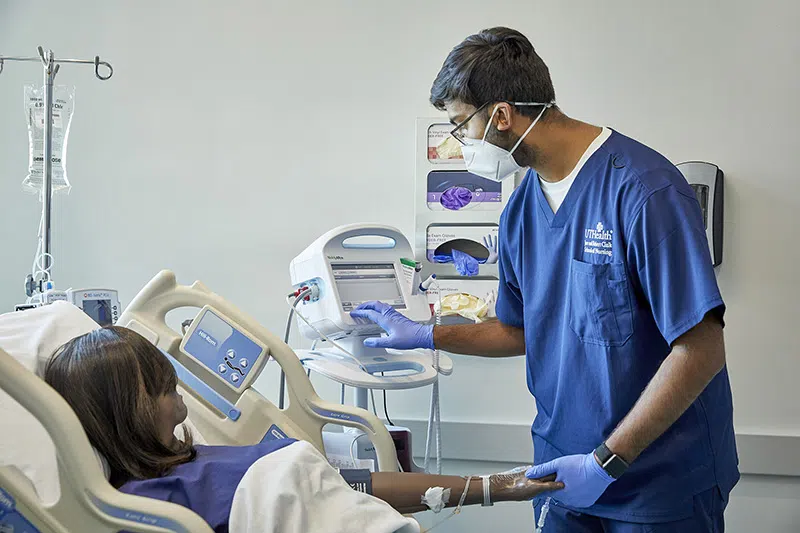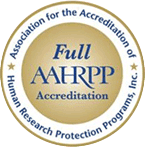POLICY
Research must be conducted in compliance with research related requirements, good clinical practice requirements, IRB requirements and applicable regulatory requirements and any noncompliance should be reported to the IRB.
Key Terms:
Compliance: Adherence to all research related requirements, good clinical practice requirements, IRB requirements and applicable regulatory requirements.
Noncompliance: Noncompliance is a failure by an investigator to abide by research related requirements, good clinical practice requirements, IRB requirements and applicable regulatory requirements. Some examples of noncompliance include, but are not limited to:
- Failure to obtain approval for research prior to initiating the research activities,
- Continuing research activities beyond the expiration date without obtaining continuing review approval,
- Failure to obtain informed consent when required,
- Failure to file an adverse event report,
- Implementing changes to the protocol without prior approval,
- Performance of research at an unapproved site, or
- Failure to adhere to the approved protocol.
Serious Noncompliance: An act or omission to act that has the potential to increase a physical, psychological, safety, or privacy risk to research participants.
Continuing Noncompliance: A repeated pattern, act, or omission to act that suggests a future likelihood of reoccurrence of the noncompliance.
PROCEDURE
Reporting to IRB – The IRB encourages reporting of noncompliance by the Principal Investigator (PI), members of the research team or others. When a report of noncompliance is made by someone other than the Principal Investigator, the confidentiality of the reporter will be maintained. Reporter names will not be disclosed to the individuals involved in the complaint, unless disclosure is required to reconcile the situation.
IRB may receive an allegation or a report of noncompliance by many means that include, but are not limited to:
- Voluntary notification by the Principal Investigator,
- Information given by other staff of the institution,
- Information given by other members of the research team,
- Monitoring reports,
- Audit reports, or
- Complaints from research subjects.
Review by IRB – Upon receipt of the allegation of noncompliance, the IRB director will determine if the allegation is valid. In order to make the determination of validity, the IRB director may solicit additional information about the allegation from study team or request review of the research by research compliance staff. If the allegation of noncompliance is not valid, the IRB director will document the allegation and determination.
If the allegation of noncompliance is valid, the IRB director determines whether the noncompliance is likely to be serious or continuing. In order to make this determination, the IRB director may solicit additional information about the allegation from study team or request review of the research by Research Compliance.
If the noncompliance is not likely to be serious or continuing, the IRB director may take no action or may write to the Principal Investigator describing the concern and require the Principal Investigator to give an explanation and outline a corrective action to avoid repeating the noncompliance. The report and the Principal Investigator’s response are both filed in iRIS and are available for review at the next continuing review cycle. If investigator’s reply is not satisfactory, this is handled as likely serious or continuing noncompliance.
If the noncompliance is likely serious or continuing, the IRB director includes the noncompliance for discussion at the next scheduled IRB Panel meeting. IRB staff will provide the noncompliance report to the IRB members via iRIS. The IRB members have access to all protocol related information including protocol and consent document via iRIS. The IRB Chairperson will keep the Executive Committee informed, in a timely fashion, of the reported allegations and the management of such allegations.
The IRB may decide to take action based on existing information or initiate an investigation by a subcommittee. If any of the members have any conflicting interests, the investigation will be reassigned to another member. The purpose of the investigation is to explore the noncompliance by assembling and examining relevant information. The subcommittee's charge is to generate a report that summarizes the information considered, conclusions regarding the noncompliance, and recommendations for action. During an investigation, additional information may emerge that justifies broadening the scope beyond the initial allegations.
The subcommittee shall have access to prior records of IRB activities and documents regarding the specific research in iRIS including any monitoring report, if available.
The subcommittee may obtain documents and other records relevant to the investigation (e.g. researcher's records, medical charts, grant applications, etc.). The subcommittee may interview any persons who may have information relevant to the noncompliance. The subcommittee may draw on the resources of the institution or external consultants to assist in the review of issues that require expertise beyond or in addition to that available to the subcommittee. The Principal Investigator under investigation will be given an opportunity to submit written comments and to appear before the IRB Panel.
At the conclusion of the investigation, the subcommittee will prepare a report summarizing the information it has considered and outlining its conclusion and recommended actions. The subcommittee will submit the report to the IRB Panel. The IRB Chairperson or IRB director will write to the Principal Investigator outlining the concerns and request a response.
If the IRB director determines that a noncompliance report requires urgent attention, the IRB director brings it to the attention of the IRB Panel Chair and the Executive Committee Chair. The IRB Chair and /or the Executive Committee chair may take urgent action as outlined in the policy on Suspensions and Terminations.
Outcome of IRB Review: The convened IRB makes a determination whether the noncompliance was serious or continuing. If the investigator offers a timely and satisfactory explanation for the concern, and IRB Panel accepts, the review process will be considered as completed and the IRB Chairperson will notify the investigator in writing that the research may continue and no further action is required.
If the investigator offers an explanation that IRB rejects, or if the investigator fails to respond within the specified time period, the Executive Committee may make a recommendation for further action that includes, but is not limited to:
- Request for more information before a final decision can be made;
- Request that the PI implement changes to the research protocol, procedures and/or informed consent documents;
- Request that the PI provide a corrective action plan to avoid a repeated occurrence in the future;
- Suspension or termination of IRB approval for the study;
- Place the study on administrative hold;
- Review of one, some or all of the investigator’s research studies;
- Revision of the frequency of the continuing review process;
- Limitation of the types or numbers of studies for which an individual may serve as investigator;
- Required additional training of the PI and the research staff;
- Disallowance of research use of data collected;
- Notification of research participants regarding study problems (required when information may relate to the participants willingness to continue participation) or re-consent of participants;
- Notification of past participants of additional information;
- Recommendation to UTHealth Administration that further action be taken;
- Notification of complainant regarding decisions and/or outcome of the investigation.
Reporting: The IRB director will prepare a final report and include it in the agenda for notification at the next convened meeting of the IRB that reviewed and approved the research.
The IRB director shall report any serious or continuing noncompliance to department heads, institutional officials, sponsors, and applicable regulatory authorities according to the policy and procedure on Reporting.
The Investigator may appeal the decision as per policy and procedure, Appeals to CPHS decisions.
APPLICABLE REGULATIONS
- 45 CFR 46 Protection of Human Subjects
- 21 CFR 56 Institutional Review Board
REFERENCE TO OTHER POLICIES
- Appeals to CPHS Decision
- Reporting
ATTACHMENTS
- None
If you find errors in this document, contact [email protected]
|
Document Number:
|
101-E04
|
|
Document Name:
|
Noncompliance
|
|
Reviewed by:
|
Executive Director, Research Compliance
|
|
Effective:
|
1 Aug 2008
|
|
Revision History:
|
1 Aug 2011, 1 Jun 2016, 21 Jan 2019, 1 Jun 2021
|
CPHS HELPLINE 713-500-7943
iRIS HELPLINE 713-500-7960
UTHealth’s Compliance Hotline (1-888-472-9868)
IRB OFFICE HOURS Thursdays from 1 to 4pm, via the Teams Room at this link
How can we improve this site?


 Featured Donor
Featured Donor











